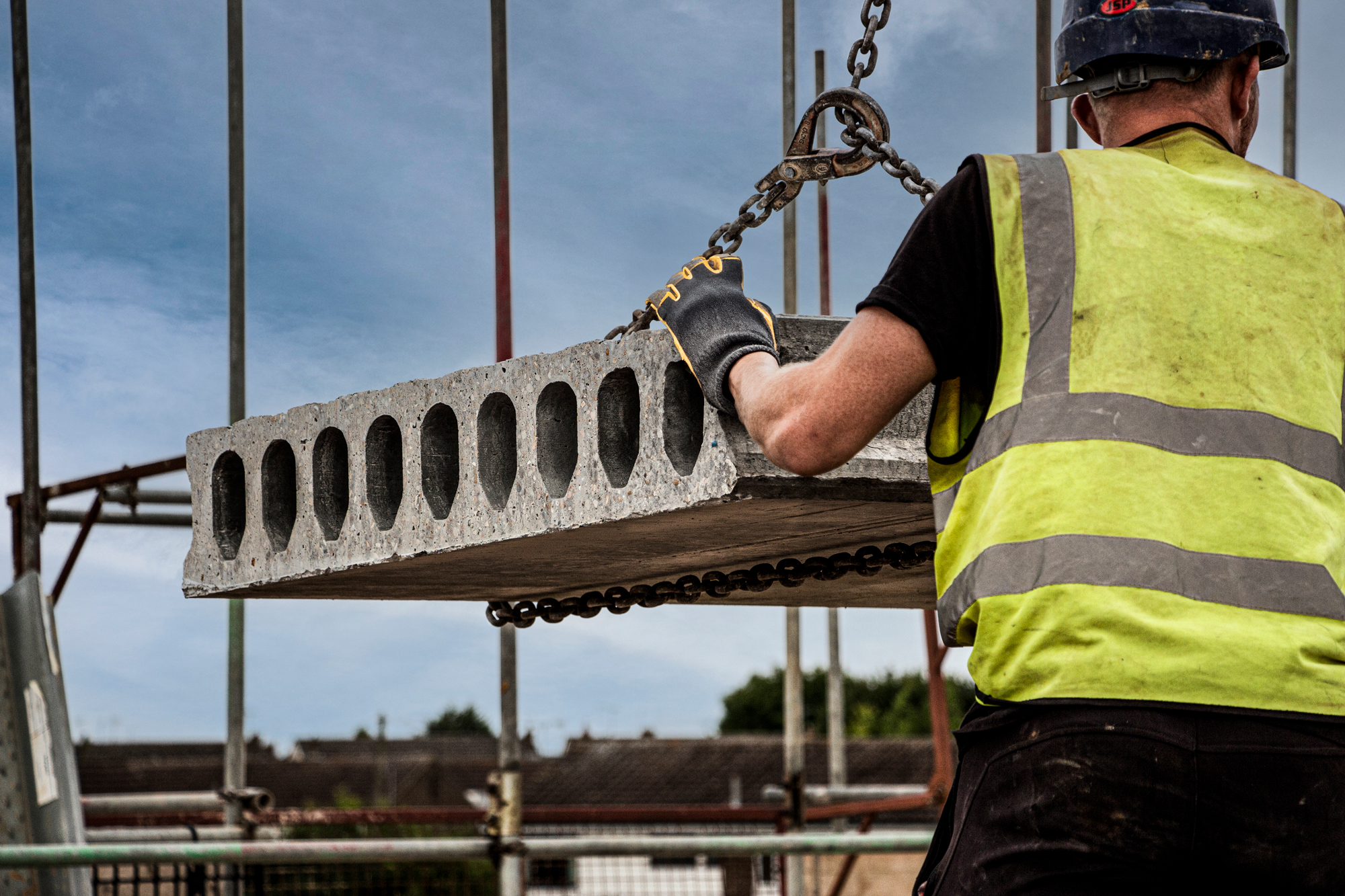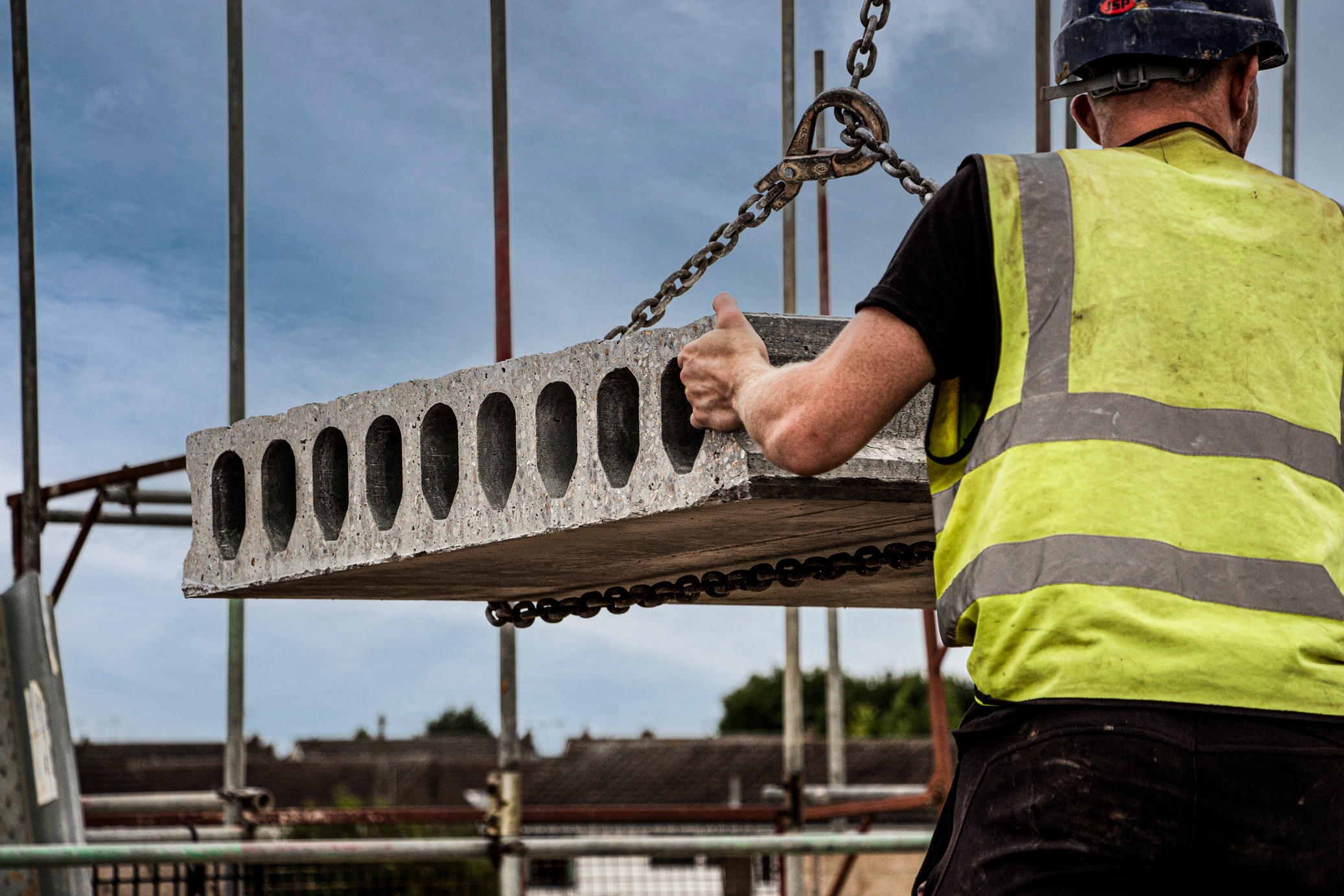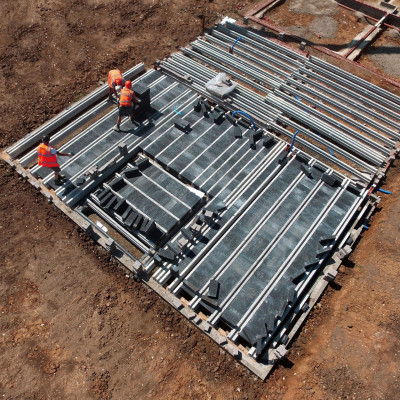
Achieving Faster Build Times With Precast Concrete

Written by
Lee Cowen, Managing Director
Milbank Concrete Products
16/05/2024
As the MD of Milbank Concrete Products, I am often at the front line when it comes to challenges which are facing the construction industry as a whole.

Whether it be the drop in demand for private sector building, or the adoption of sustainable and green practices within the industry, the sector is frequently dealing with ever changing needs and requirements.
However, one challenge which doesn’t seem to be going away is a skills shortage. This long term issue isn’t something which can be fixed overnight – a shift in mindset, perception and working practices needs to be achieved and this will take time.
As a leading supplier to the industry, we’re committed to providing innovative solutions to our clients, and I believe that the use of precast concrete could help alleviate some of the pressures associated with the skills shortage we’re facing here in the UK.
The Skills Shortage in the UK Construction Sector
The UK construction industry is facing a significant skills shortage, with a growing gap between the demand for skilled workers and the available workforce. Despite the size of the sector, around 200,000 skilled workers are required to close the construction skills gap by 2025 – believed to be the highest skills shortage in the sector since 2007[1]. There continues to be a growing demand for new homes, infrastructure projects, and commercial developments. However, the industry is struggling to attract and retain talent, with factors such as an aging workforce (20% of construction workers in their 50s), lack of vocational training opportunities, and negative perceptions of construction careers contributing to the shortfall.
This skills shortage poses a formidable challenge for construction companies, as it impacts project timelines, productivity, and overall industry growth. With fewer skilled workers available to fill key roles on construction sites, projects often face delays and cost overruns, jeopardising the completion of a project. Additionally, the skills gap exacerbates existing challenges within the industry, such as labour productivity, innovation adoption, and safety performance. In order to address this issue, construction companies must explore innovative solutions that optimise efficiency, reduce reliance on manual labour, and accelerate project delivery.
But what can we do to help ease the pressure of the skills shortage in the short term? Reviewing working practices and traditional building methods and materials could be one solution to ease some of the demand and have a positive impact on the skills shortage issue. Over time with new ways of working and more streamlined operations, we could see a dent being made on the amount of labour / manpower required on the ground construction projects.
The Role of Precast Concrete in Achieving Faster Build Times
Precast concrete is a revolutionary construction material that offers a solution to the challenges of the skills shortage while simultaneously enhancing project efficiency and productivity.
Unlike traditional cast-in-place concrete, which requires extensive on-site labour and curing time, precast concrete components are manufactured off-site in a controlled factory environment. This off-site fabrication process offers several advantages that contribute to faster build times and reduced reliance on manual labour.
One of the primary benefits of precast concrete is its efficiency in construction processes. By prefabricating components such as Hollowcore flooring, Beam & Block systems, precast concrete columns, and retaining walls off-site, construction companies can significantly accelerate project timelines. Off-site fabrication eliminates the need for on-site curing time, weather-dependent construction activities, and complex coordination of multiple trades, allowing construction teams to install precast elements quickly and efficiently. At Milbank Concrete Products, we leverage advanced manufacturing techniques and state-of-the-art facilities to produce high-quality precast solutions that meet the stringent demands of modern construction projects.
Precast concrete also offers inherent durability, consistency, and quality assurance, making it an ideal choice for construction applications of all scales and complexities. By standardising production processes and implementing rigorous quality control measures, construction companies can mitigate the risks associated with variable skill levels among on-site workers. With precast concrete, there’s no compromise on quality or performance, ensuring that projects are built to last and withstand the test of time.
How Precast Concrete Can Help Plug the Gap in the Skills Shortage
One of the most compelling advantages of precast concrete is its ability to reduce the reliance on manual labour on construction sites.
By shifting the fabrication of construction elements from the field to the factory, construction companies can optimise labour resources, minimise on-site workforce requirements, and improve overall productivity. With precast concrete, skilled workers are tasked with precision manufacturing and quality assurance in controlled environments, rather than performing labour-intensive tasks on-site.
The use of precast concrete presents a compelling solution to the challenges posed by the skills shortage in the UK construction sector. By leveraging off-site fabrication, standardised production processes, and advanced manufacturing techniques, construction companies can achieve faster build times, enhance project efficiency, and reduce reliance on manual labour.
At Milbank Concrete Products, we’re committed to driving innovation and efficiency in the construction industry through our wide range of precast solutions. This goes hand in hand with our commitment to becoming the most sustainable manufacturer of precast concrete in the UK. Our aim is to be net-zero for scope 1 and 2 emissions by 2030 – 20 years ahead of government targets. Through the implementation of initiatives such as introducing solar panels at our factory, moving our vehicles to HVO fuel and using a carbon neutral biomass boiler for concrete curing, we’re well on the way to achieving this.
We believe that our precast concrete could help build a brighter future for the construction sector and bridge the gap in the skills shortage, one project at a time.
If you’re interested in finding out more about precast concrete and how our products could support your project, get in touch with our experts today by emailing [email protected] or giving us a call on 01787 223931.




